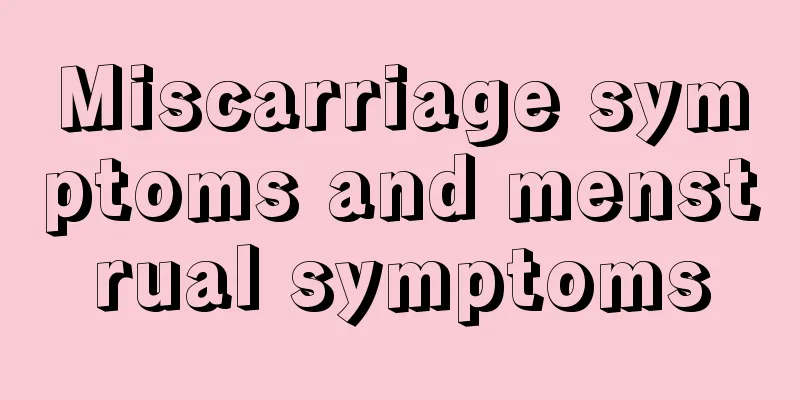Need IV drips every time you get sick? These diseases don’t require it!

|
For a long time, people have believed that intravenous infusion is more convenient and more effective than oral medication. However, they do not know that this is an extremely wrong treatment method and has many harmful effects on the body. Recently, the Hangzhou Health Commission issued a reminder: It is not recommended to have intravenous infusion as soon as you are sick. What is intravenous fluids? Is it better than oral administration? There are three main ways for people to use drugs: oral, intramuscular, and intravenous. What we often call infusion belongs to intravenous injection. Intravenous infusion refers to the administration of fluids or injectable drugs through the veins of patients to improve microcirculation, prevent and correct electrolyte disorders, and achieve the purpose of treating the patient's disease. It is usually a method of administration when the patient cannot be effectively treated by oral or intramuscular or subcutaneous injection of drugs. Because the drug enters the systemic circulation directly, intravenous infusion has a higher utilization rate or a faster onset of action compared to other routes of administration, such as oral, sublingual, rectal enema, subcutaneous or intramuscular injection, and nebulization inhalation. Image source: pixabay However, it is precisely because it directly enters the blood circulation, skipping the drug absorption process and eliminating the immune link of the human body to identify foreign substances, which makes it easier to cause adverse drug events. It is also because of the rapid onset of action that many people receive intravenous infusions when they are slightly sick, and even when they are not sick, they receive intravenous infusions to "replenish their body." The harm caused by abuse of intravenous infusion is serious and long-term. In addition to life-threatening drug allergic reactions, common infusion reactions include pyrogenic reactions, phlebitis, air embolism, particle embolism, leakage injury, acute heart failure, infection, etc. Infusing when you are sick is tantamount to chronic suicide. In addition, excessive intravenous infusion also increases the waste of medical resources and increases the financial burden on patients. Attention! These 53 diseases do not require intravenous infusion As an important medical reform measure, many places have controlled or cancelled intravenous infusion treatment for adults in hospitals. Some conditions, such as viral colds, chickenpox, bacterial upper respiratory tract infections, mild diarrhea, etc., do not require intravenous infusion. Oral administration of corresponding therapeutic drugs can cure the disease, which is safe and effective. The following 53 diseases do not require intravenous infusion treatment. Long-term regular oral medication is recommended for chronic diseases of internal medicine 1. Upper respiratory tract infection: common cold, viral pharyngitis 2. Acute tracheobronchitis, body temperature below 38°C 3. Patients with bronchiectasis without acute inflammation 4. Bronchial asthma is in the chronic persistent stage and remission stage 5. Pulmonary tuberculosis (except disseminated pulmonary tuberculosis) 6. Interstitial lung disease without obvious respiratory distress 7. COPD remission 8. Uncomplicated chickenpox, mumps, rubella 9. Hypertensive urgency 10. Chronic superficial gastritis 11. Non-infectious diarrhea with anhydration and electrolyte imbalance 12. Simple Helicobacter pylori infection 13. Mild colitis 14. Uncomplicated peptic ulcer 15. Mild liver damage with clear etiology 16. No organic lesions were found after multiple visits to the doctor, so functional gastrointestinal disease was considered 17. Acute cystitis 18. Spontaneous pneumothorax without complications 19. Simple premature ejaculation and ventricular premature ejaculation 20. Endocrine and metabolic diseases without acute complications 21. Alzheimer's disease without special complications, hemifacial spasm, motor neuron disease, multiple tics, sleep disorders, anxiety, depression, migraine 22. Epilepsy (except status epilepticus and frequent epileptic seizures) 23. Primary and secondary prevention of cerebrovascular diseases without special complications (non-acute stage of cerebrovascular diseases) 24. Renal anemia, nephrotic syndrome, chronic glomerulonephritis, proteinuria without special complications Surgery can be easily treated without intravenous injection 1. After resection of superficial tumor 2. Mild surface infection (no fever, normal blood count) 3. Mild soft tissue contusion 4. After minor body surface debridement 5. Superficial phlebitis 6. Senile osteoarthritis 7. Non-acute lumbar disc herniation and spinal stenosis 8. Closed non-surgical treatment of limb fractures 9. Chronic strain-related diseases 10. Chronic cystitis 11. Chronic prostatitis 12. Prostatic hyperplasia 13. Kidney stones without complications 14. Seminal vesiculitis 15. Acute rhinitis, various types of chronic rhinosinusitis, allergic rhinitis, acute sinusitis without complications 16. Acute simple pharyngitis, chronic pharyngitis, acute simple tonsillitis 17. Acute laryngitis (except severe cases) and chronic laryngitis 18. Acute and chronic external otitis, acute and chronic otitis media without complications, external auditory canal eczema, myringitis Pediatrics decides whether to give intravenous fluids based on the patient's condition 1. Upper respiratory tract infection: course of disease within 3 days, body temperature below 38°C, and good mental state. 2. Diarrhea in children: Those with mild dehydration can take oral rehydration. 3. Bronchiolitis: mild wheezing. 4. Hand, foot and mouth disease or herpetic pharyngitis: no fever, good mental state, and normal blood count. Gynecological antibiotics may destroy the "microecological environment" 1. Chronic pelvic inflammatory disease 2. Chronic cervicitis 3. Asymptomatic uterine fibroids 4. Bartholin's gland cyst 5. Vaginitis and vulvitis 6. Primary dysmenorrhea 7. Not associated with anemia and irregular menstruation Standardize infusion and use medication safely. Oral administration instead of intramuscular injection is recommended, and intramuscular injection instead of infusion is recommended. If you are feeling unwell, please follow the doctor's instructions on whether to receive an infusion. Planning and production Source: People's Daily Online Science and Technology Comprehensive Hangzhou Daily, Healthy Hangzhou Editor: Yang Yaping |
Recommend
Is it normal for leucorrhea to be yellow during ovulation?
Generally, women experience a menstrual period an...
Women's dehumidification methods, these are very good!
Women naturally love beauty, especially the beaut...
Why do we put chopsticks when steaming fish? Will it be easier to cook if we put chopsticks under the steamed fish?
As we all know, steamed fish is a common delicacy...
How much is the human chorionic gonadotropin level when not pregnant?
Human chorionic gonadotropin is a very important ...
The shape of the labia
Many female friends do not know much about the sh...
Is it harmful to play with mobile phone while breastfeeding? What is the best thing to do while breastfeeding?
We all know that after giving birth, mothers will...
Symptoms of uterine prolapse after cesarean section
Nowadays, many people like to have cesarean secti...
What to do if you have no milk three days after giving birth
We all know that women will be able to produce mi...
Is sexual desire strong during ovulation?
As we age, both women and men will have very stro...
What are the benefits of drinking yogurt at night?
Women pay more attention to health preservation, ...
How to regulate irregular menstruation and blood deficiency
With the continuous development of real society, ...
What causes vulva swelling? How to prevent it?
The vulva is the general term for the outside of ...
Why do I get irritable before my period?
Menstruation is a normal physiological phenomenon...
I found out I was pregnant after a chest X-ray.
Many people go for regular physical examinations ...
Location of ovaries in abdomen
The uterus and ovaries are indispensable structur...









